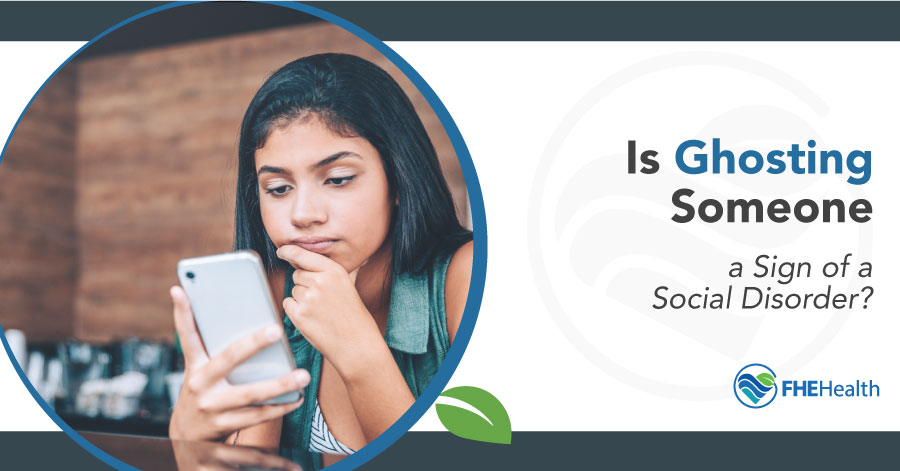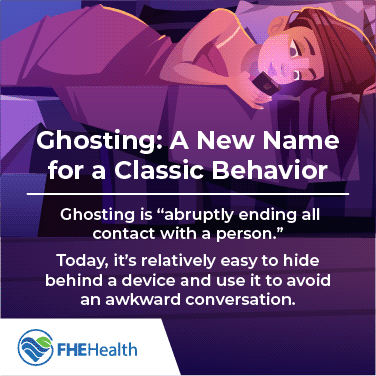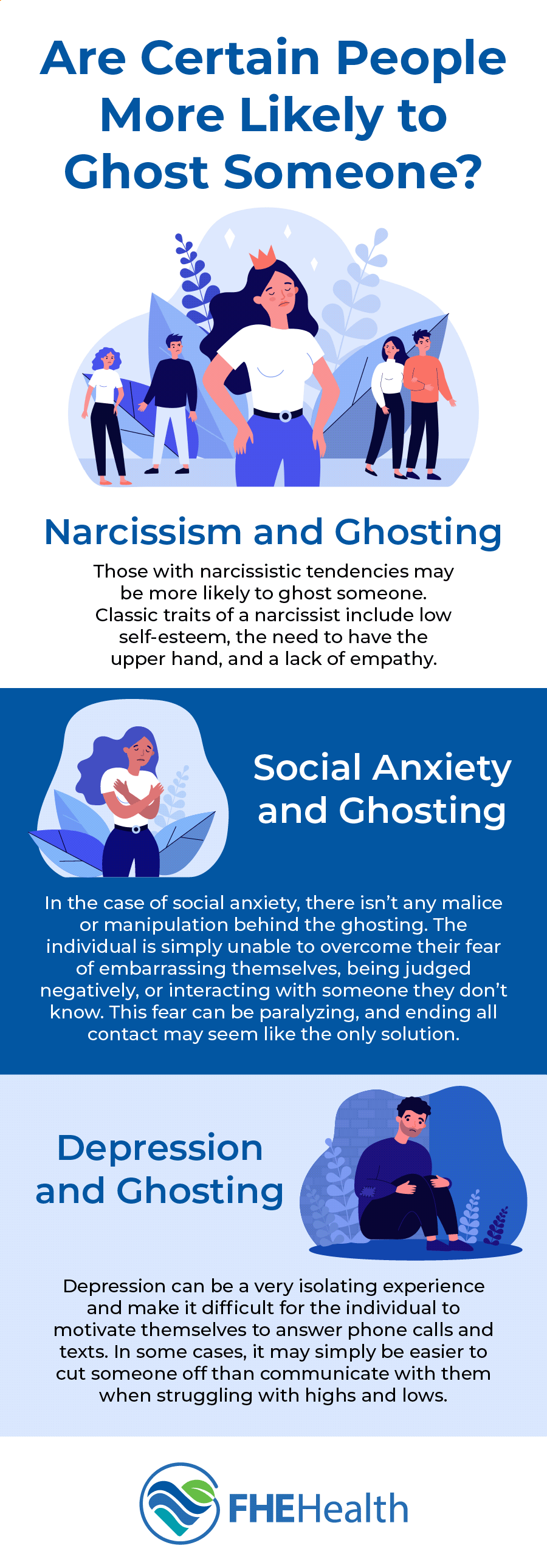
If someone you considered close suddenly started to ignore you, you’ve experienced ghosting firsthand. The experience of having someone cut off all communication with no warning carries a real emotional and psychological impact. As the practice becomes increasingly common in friendships, romantic relationships, and even workplace interactions, the question arises: Could ghosting be symptomatic of a deeper social disorder affecting how we relate to one another?
Understanding Ghosting
What Is Ghosting?
In 2006, Merriam-Webster began to find that “ghost,” also meant “abruptly ending all contact with a person.” Today, anyone who has met potential partners online has likely been on one or even both sides of the ghosting phenomenon.
both sides of the ghosting phenomenon.
This behavior is surprisingly common. Between 13 and 23 percent of adults in the United States have been ghosted by a romantic partner. In an informal online survey, nearly one-third of respondents reported ghosting someone.
Situations Where Ghosting Is Common
Ghosting is mostly linked to dating. But it can happen in friendships and professional settings. In romantic relationships, the practice is most prevalent in the early stages, as individuals often avoid the awkwardness of breakups. Dating apps and social media platforms have made it easier to stop responding rather than have uncomfortable conversations. Friendships are vulnerable to ghosting when disagreements or misunderstandings arise, causing individuals to distance themselves rather than address issues.
Workplace ghosting manifests when individuals avoid difficult conversations or responsibilities, such as job candidates disappearing after interviews or colleagues neglecting to follow up on commitments. Unsurprisingly, this type of behavior damages professional relationships and reputations.
Historical and Cultural Context
For many couples who meet through dating apps, the groundwork of the relationship is often laid through online communication. One of the biggest appeals to online dating is the opportunity to connect with someone in a neutral, non-threatening environment. This format allows individuals to learn about a potential partner’s personality, family, educational background, employment history, hobbies, and interests, and even if both have busy schedules.
Unfortunately, online dating also entails a certain level of anonymity, making it easy for one person to “disappear” without a trace. A couple may meet through a dating app and seem to connect well. Perhaps they share similar upbringings and political or religious beliefs, and their personalities mesh well. Everything might appear to be going well until one person unexpectedly stops all communication. The individual may go so far as to block the other person’s ability to text, call, or find them on social media.
Is Ghosting a Modern Phenomenon?
Ghosting is becoming more prevalent, but it is not a new behavior. The sudden abandonment of relationships has likely been a phenomenon since the dawn of time. However, as people have developed different avenues for forming connections, they’ve also created new ways to avoid those connections.
A couple of decades ago, people were limited to dating within their immediate social circle, perhaps through a shared hobby, workplace, or a mutual friend. If it became clear that the relationship wasn’t what one person was looking for, a breakup conversation was much harder to avoid. Running into their former partner was nearly inevitable unless they intended to make significant life changes.
Ghosting is common not because people have changed, but because the dating landscape has changed. Today, hiding behind a device and using it to avoid an awkward conversation is relatively easy. Because it’s much easier now to meet someone outside of the individual’s immediate circle, the likelihood of crossing paths with that person after a breakup is much smaller.
Why People Ghost
People abruptly end all forms of contact with others for several reasons, often linked to fear or emotional discomfort. While most people dislike confrontation, some want to avoid uncomfortable discussions at all costs. Blocking someone and hoping they take the hint is much easier than having a difficult conversation, so that’s the route many people go.
Individuals who choose to end connections by ghosting may also be emotionally immature and struggle to comprehend the emotional harm their behavior can cause. Additionally, ghosting can be motivated by a desire for self-protection. Some may view it as an easy way to shield themselves from rejection or emotional distress, though it often increases feelings of guilt in the long run.
Psychological Profile of Ghosters
In most cases, this situation has little to do with the person being ghosted and is tied to the other person’s shortcomings. However, some personality or behavior traits may make someone more likely to ghost their way out of a relationship.
“As people are able to avoid consequences or create social distance where they think they can do or say anything, inconsiderate behavior and words will increase, this is something we are seeing throughout social media,” shared Dr. Beau A. Nelson, DNH, LCSW, a mental health clinician and Chief Clinical Officer at FHE Health a nationally recognized behavioral health provider.
Narcissistic Traits
Those with narcissistic tendencies may be more likely to end contact with a partner unexpectedly. Ghosting itself reflects some classic traits of a narcissist, including low self-esteem, the need to have the upper hand in a relationship, and a lack of empathy for the other person.
Someone with this personality disorder forms relationships based on how they may benefit them. If that relationship challenges them or their ideas about their character or flaws, they may no longer consider it beneficial and may end it. Ghosting allows them to maintain their position of power by letting them end things on their terms and preventing potential rejection. Avoidant personality tendencies are also common, meaning ghosters prefer to distance themselves rather than confront difficult emotions or situations.
Attachment Styles
Attachment styles also influence ghosting behavior. Those with avoidant attachment fear closeness and emotional dependence, prompting sudden disconnection. In contrast, individuals with anxious attachment styles fear rejection and use withdrawal as a coping mechanism.
Mental Health Correlations
Social anxiety disorder is characterized by fear and avoidance that interfere with healthy relationships. While the individual may have the drive to seek out connections with others, this disorder can sabotage their efforts by causing them to fear the process of building those connections. In this case, there isn’t any malice or manipulation behind the ghosting. Individuals often struggle to overcome their fear of embarrassing themselves, being judged negatively, or interacting with someone they don’t know.
Similarly, depressive disorders such as major depression and bipolar disorder can sabotage an individual’s efforts to build and maintain relationships. Sometimes, it may be easier to cut someone off than communicate with them when struggling with highs and lows.
Furthermore, ghosting behaviors may indicate antisocial tendencies, including a lack of empathy or responsibility for the impact of their actions on others. Individuals exhibiting these traits often disregard the feelings of others and view ghosting as an easy way to handle interpersonal stress without concern for consequences.
In some cases, ghosting isn’t tied to a mental illness or personality disorder. Instead, it has more to do with how a person sees romantic relationships.
Impact on the Ghosted Individual
Emotional and Cognitive Effects
Being ghosted is a frustrating, disappointing, and painful experience. If one person feels the connection and is optimistic about the relationship’s future, it’s hurtful when their partner unexpectedly cuts off contact. It’s normal to feel betrayed and depressed after being ghosted, and it makes sense to want closure and an explanation for why that relationship came to an abrupt end. Without clear answers, they experience what’s called ambiguous loss or grief without closure, which makes emotional processing especially challenging.
Long-term Psychological Ramifications
Over time, repeated experiences of ghosting can lead to more profound psychological effects, including symptoms of depression. Individuals on the receiving end of the disappearing act may develop trust issues and find it difficult to build long-lasting relationships.
Ethical and Social Implications
Is Ghosting Ever Justifiable?
If someone receives unsolicited, inappropriate content or has reason to believe that continuing a relationship with the other person may jeopardize their physical safety, ghosting may be a perfectly acceptable way to stop communication. Similarly, ghosting is acceptable if the person believes they’re being catfished. It may also be okay to stop communicating if the other person shows a lack of interest by not initiating contact or not consistently responding to phone calls or texts.
While ghosting is generally frowned upon, there may be times when it’s acceptable or even the best way to end a relationship. Generally speaking, however, it’s a good idea to give the other person a heads-up on why the relationship won’t continue.
Ghosting Is Personal
Aside from a handful of scenarios, it’s generally better to be honest when ending a relationship. Ghosting is immature, and as difficult as it is to have an awkward breakup conversation, it shows a lack of consideration for the other person and brings closure to the relationship.
While it’s common for people to underestimate its impact, ghosting is a harmful practice driven by fears, immaturity, and emotional avoidance. It can indicate deeper societal issues around connection and emotional resilience. But more often than not, it reflects individual reactions to difficult situations.
Understanding the importance of clear communication and emotional maturity in the digital age may lead to fewer instances of ghosting and healthier, more compassionate social interactions.
Have You Been Affected by Ghosting?
If you’ve been affected by a date’s disappearing act or know you have a pattern of ghosting people, it may be a good idea to seek help from a mental health care professional. FHE Health offers one-to-one individual counseling in a safe and compassionate environment. Contact us now; our team is here to listen at any time, day or night.






